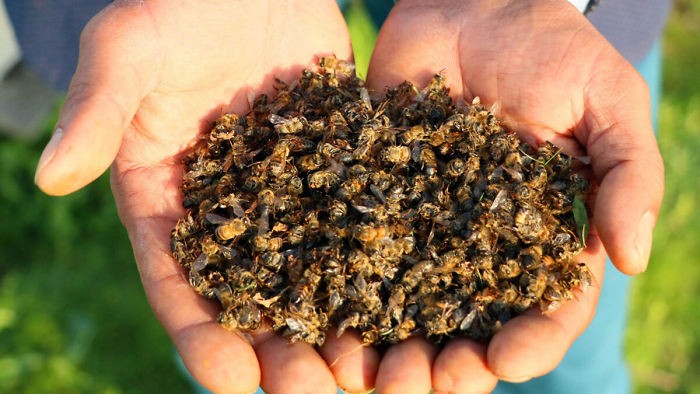Bees are the significant contributors for the propagating the production of plant life on planet earth with their pollination. Their pollination process is the most integral part of the whole ecosystem to thrive. According to the United Nations’ FAPO (Food and Agriculture Organization) bees have the 75 percent responsibility on their small shoulders for the crops to grow. But the troubling thing that has emerged most recently is that these crucial bee population dying off at a rapid pace.
Recently in Brazil, within a period of 3 months, nearly 500 million bees have died which leaves the future of the food with big and alarming questions.

According to reports, nearly 500 million bees have been found in Brazilian states by the beekeepers dead. The count of dead bees in the Rio Grande do Sul is about 400 million, in Sao Paulo, the count is about 7 million, in Santa Catarina it is 50 million and finally, in Mato Grosso do Sul nearly 45 million bees have died.

This data of the dead bees were collected by the researchers from the period between December of 2018 to February of 2019.

Aldo Machado, the vice president for the beekeeping association of the Rio Grande do Sul said to media that within a period of 48 hours, hundreds of thousands of the bees fell sick and then died. He said, “As for the healthy bees, which cleared the hive from these dead and sick bees, they also got contaminated and they too started to die in masses.”

The blame for the death of this much bee population has been placed by researchers over the excessive use of the pesticides. Back in January, Brazil approved the use of nearly 300 different kinds of pesticides in the country to be used on the crops.

Researchers studied these dead bees and found the pesticide compound named Fipronil inside many of these bees. This compound is actually a type of insecticide that is used in vet’s clinics for helping the pets to be ridden of the ticks and fleas.

The compound Fipronil has been classified by the U.S. Environmental Protection Agency as a carcinogenic substance.

This means that the effects of these compounds on not only humans are devastating but also alarming for the bee population.

President of the Apiculturist Association of Brazil’s Federal District named Alberto Bastos said to media, “This much death of the bees is a proof that we humans are also being poisoned.”

Related Content
CDC says nearly 100 vapers are contracted with a serious lung disease






Comments
Loading…